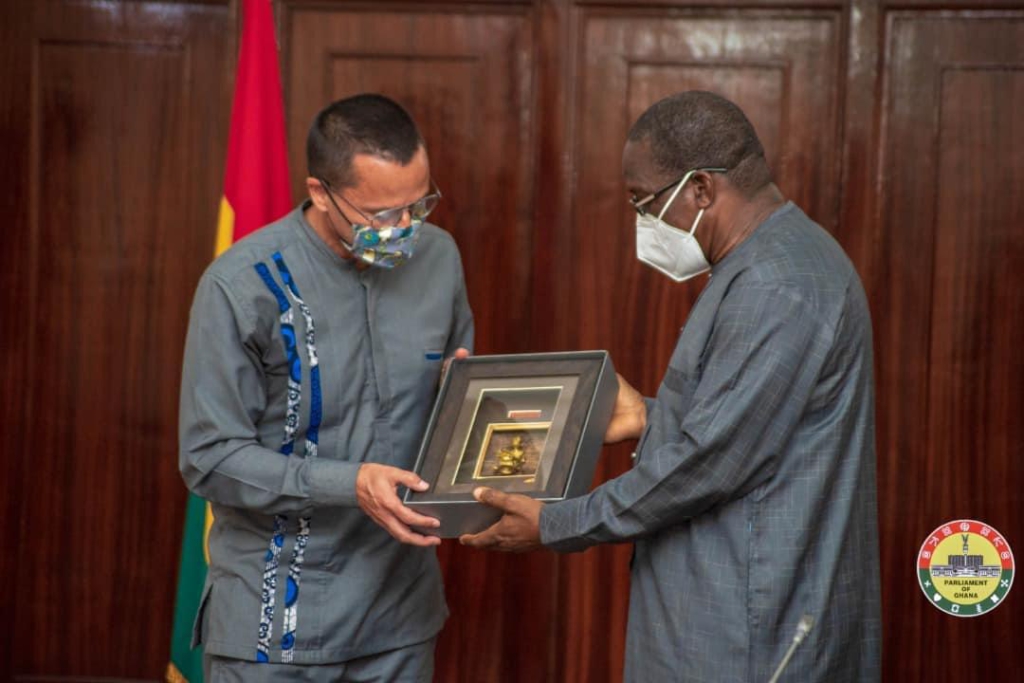The anti-gay bill approved by Ghana’s parliament was occasioned by provocations from foreign diplomats like the Australian High Commissioner to Ghana Gregory Andrews., North Tongu Member of Parliament has said.
“This was a result of provocation from the Australian High Commissioner,” he said on the Key Points on TV3 on Saturday, March 9.
He stressed that Ghanaians were not too concerned about what people do in their bedrooms relative to their sexual activities until the comments of Mr Gregory Andrews.
Gregory Andrews in April 2021 stated that an attempt by Ghana’s Parliament to pass the anti-LGBTQI+ bill would be disappointing.

Mr Andrews stated that Ghanaian culture needs to accept people for who they are by respecting their rights without causing any harm to people indulging in the act.
Paying a courtesy call on the Speaker of Parliament on Thursday, he said, “We believe that to protect human rights sometimes our culture needs to adapt and that doesn’t mean being a different culture, it means accepting people for who they are especially when they are not causing harm to anyone else.”
“That is why on the LGBTQ+ issues, Australia will really encourage Ghana’s Parliament not to pass legislation that would discriminate the LGBTQ+ community or remove their rights or to make it illegal for people to advocate for their Human Rights.”
On February 28, Parliament passed the Proper Human Sexual Rights and Ghanaian Family Values Bill, otherwise known as anti-gay Bill.
This has attracted varied reactions from various stakeholders, including the diplomatic community.
The Ministry of Finance in a brief to President Akufo-Addo on March 4 pointed to dire implications of assenting to the Bill.
US State Department spokesperson Matt Miller expressed concerns about the potential consequences of the bill, stating, “So we have made very clear what our opinion is on that law – you can look at my statement yesterday – and we have made that clear in private conversations with the Government of Ghana as well. I don’t think I should get any more specific than that, but if this bill becomes law, it would certainly have a chilling effect on foreign investment and tourism in Ghana”.
President Nana Addo Dankwa Akufo-Addo allayed the fears of the diplomatic community that the anti-lgbtqi bill will disturb the good human rights records of the country.
The president assured that ‘no such back-sliding will be contemplated or occasioned’.
In a message to the diplomatic community on Monday, March 4, the president said that the bill has not yet been submitted to him.
“I am aware that last week’s bi-partisan passage by Parliament of the Proper Human Sexual Rights and Ghanaian Family Values Bill, on a Private Member’s motion, has raised considerable anxieties in certain quarters of the diplomatic community and amongst some friends of Ghana that she may be turning her back on her, hitherto, enviable, longstanding record on human rights observance and attachment to the rule of law. I want to assure you that no such back-sliding will be contemplated or occasioned.
“I think it will serve little purpose to go, at this stage, into the details of the origin of this proposed law, which is yet to reach my desk. But, suffice it to say, that I have learnt that, today, a challenge has been mounted at the Supreme Court by a concerned citizen to the constitutionality of the proposed legislation.
“In the circumstances, it would be, as well, for all of us to hold our hands, and await the decision of the Court before any action is taken. The operation of the institutions of the Ghanaian state will determine the future trajectory of the rule of law and human rights compliance in our country,” President Akufo-Addo said.
In the view of Mr Ablakwa, the President was more concerned about the feelings and concerns of the foreign diplomats than the posture of Ghanaians.
“He should have maintained a position for his people or laws, he should have asked the diplomatic committee to back off. He appears more concerned about the feelings and the threats of withdrawing aids,” he said.



